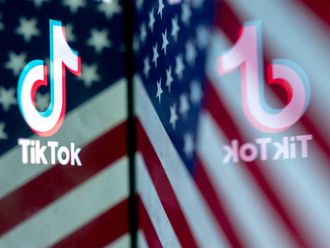
Washington: A defiant President Donald Trump shrugged off a barrage of bipartisan criticism on Thursday and said US culture and history were being “ripped apart” by the removal of Confederate statues.
Trump waded back into the charged racial debate over monuments to the pro-slavery South with a volley of tweets doubling down on his controversial remarks of the past few days.
Trump has come under fire from Republicans and Democrats alike for saying that anti-racism protesters deserved equal blame for violence last weekend at a white supremacist rally in Charlottesville, Virginia, held to protest the planned removal of a statue of Confederate general Robert E. Lee.
A 32-year-old woman was killed and 19 other people injured when a man suspected of being a white nationalist drove his car into a crowd of counter-protesters.
Moves to remove statues honouring leaders of the Confederacy have gained momentum since the Charlottesville violence with monuments coming down in Baltimore and other cities.
Trump, echoing remarks he first made earlier this week, made it clear he opposed the campaign.
AP
Thousands of students, faculty and residents led a candle light march in Charlottesville.
“Sad to see the history and culture of our great country being ripped apart with the removal of our beautiful statues and monuments,” Trump said.
“You can’t change history, but you can learn from it. Robert E Lee, Stonewall Jackson — who’s next, Washington, Jefferson? So foolish!” he said.
“Also the beauty that is being taken out of our cities, towns and parks will be greatly missed and never able to be comparably replaced!” he said.
Lee and Thomas “Stonewall” Jackson were Confederate generals while George Washington and Thomas Jefferson were among the Founding Fathers of the United States.
Trump critics were quick to point out the difference.
“Dear @realDonaldTrump: Robert Lee and Stonewall Jackson are not the same as Washington and Jefferson. Can’t believe I had to write that sentence,” said Ted Lieu, a Democratic congressman from California.
Trump’s chief strategist, Steve Bannon, told The New York Times that he believed the president’s views were shared by many Americans.
Demonstrators participate in a march and rally against white supremacy in downtown Philadelphia.
“President Trump, by asking, ‘Where does this all end’ — Washington, Jefferson, Lincoln — connects with the American people about their history, culture and traditions,” Bannon said.
“The race-identity politics of the left wants to say it’s all racist,” Bannon said. “Just give me more. Tear down more statues. Say the revolution is coming. I can’t get enough of it.”
Trump on Thursday also lashed out at two leading Republican critics in the Senate and accused the media of distorting his views.
“The public is learning (even more so) how dishonest the Fake News is,” he said. “They totally misrepresent what I say about hate, bigotry. etc Shame!”
On Monday Trump singled out the Ku Klux Klan and neo-Nazis as “repugnant,” but on Tuesday he said counter-protesters in Charlottesville had been “very violent” and equally responsible for the violence.
Trump’s weak condemnation of the racist far-right set off a political firestorm across the US political spectrum. World leaders also criticised Trump’s response.
Trump was forced to scrap two White House economic advisory councils on Wednesday as top businessmen began abandoning him to protest his stance on the racial debate.
The president took aim at two fellow Republican senators, Lindsey Graham of South Carolina and Jeff Flake of Arizona, in a series of tweets.
“Publicity seeking Lindsey Graham falsely stated that I said there is moral equivalency between the KKK, neo-Nazis & white supremacists ... and people like Ms. Heyer,” Trump said.
Heather Heyer, 32, was the woman killed by the suspected white nationalist in Charlottesville.
Graham had said the US president “took a step backward” Tuesday “by again suggesting there is moral equivalency between the white supremacist neo-Nazis and KKK members who attended the Charlottesville rally” and people like Heyer.
Trump also blasted Flake, one of the few Republicans openly critical of the president, saying he was “WEAK on borders, crime and a non-factor in Senate.”
“He’s toxic!” Trump tweeted.
Flake, who is running for re-election in Arizona, wrote Tuesday: “We can’t accept excuses for white supremacy & acts of domestic terrorism. We must condemn. Period.”
Meanwhile, Bannon, attacked white supremacists as “clowns” and “losers” and described his efforts against administration rivals in an unusual interview Wednesday with The American Prospect, a progressive magazine.
The interview with magazine co-editor and columnist Robert Kuttner was initiated by Bannon, Kuttner said, in an Anthony Scaramucci-style phone call out of the blue in response to a column Kuttner had written on China.
“Bannon was in high spirits when he phoned me Tuesday afternoon to discuss the politics of taking a harder line with China, and minced no words describing his efforts to neutralise rivals at the Departments of Defence, State and Treasury,” wrote Kuttner.
“’They’re wetting themselves,’ he said, proceeding to detail how he would oust some of his opponents at State and Defence.”
Bannon was also asked by Kuttner to comment on the deadly white supremacist rally in Charlottesville last weekend and President’ Trump’s reluctance to condemn the participants.
“Ethno-nationalism — it’s losers. It’s a fringe element,” Bannon told the magazine. “I think the media plays it up too much, and we gotta help crush it, you know, eh, help crush it more.”
“These guys are a collection of clowns,” he added.
The remarks were startling coming from Bannon, who spent more than four years running the far-right website Breitbart News before he was tapped to join Trump’s campaign.
Bannon, the site’s former executive chair, has called the Breitbart “a platform of the alt-right,” referring to the small, deeply conservative movement that seeks a whites-only state. It was his strategy to use the site to channel white supremacist support for Trump and provide a mouthpiece for his populist message during the 2016 election, a move that helped secure him a senior role in the administration.
In the wake of the violence in Charlottesville, which left a counterprotester dead and others injured, civil rights leaders have called on Trump to fire Bannon over his ties to the white nationalist community, as The Washington Post has reported.
Asked by reporters Tuesday if he still had confidence in his chief strategist, Trump deflected.
“He’s not a racist, I can tell you that,” Trump said. “But we’ll see what happens with Mr. Bannon.”
Kuttner wrote in Wednesday’s article that he was surprised when he got an email from one of Bannon’s assistants saying he wanted to arrange a meeting. The two ended up speaking by phone on Tuesday afternoon, according to the article.












